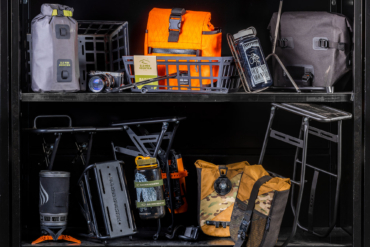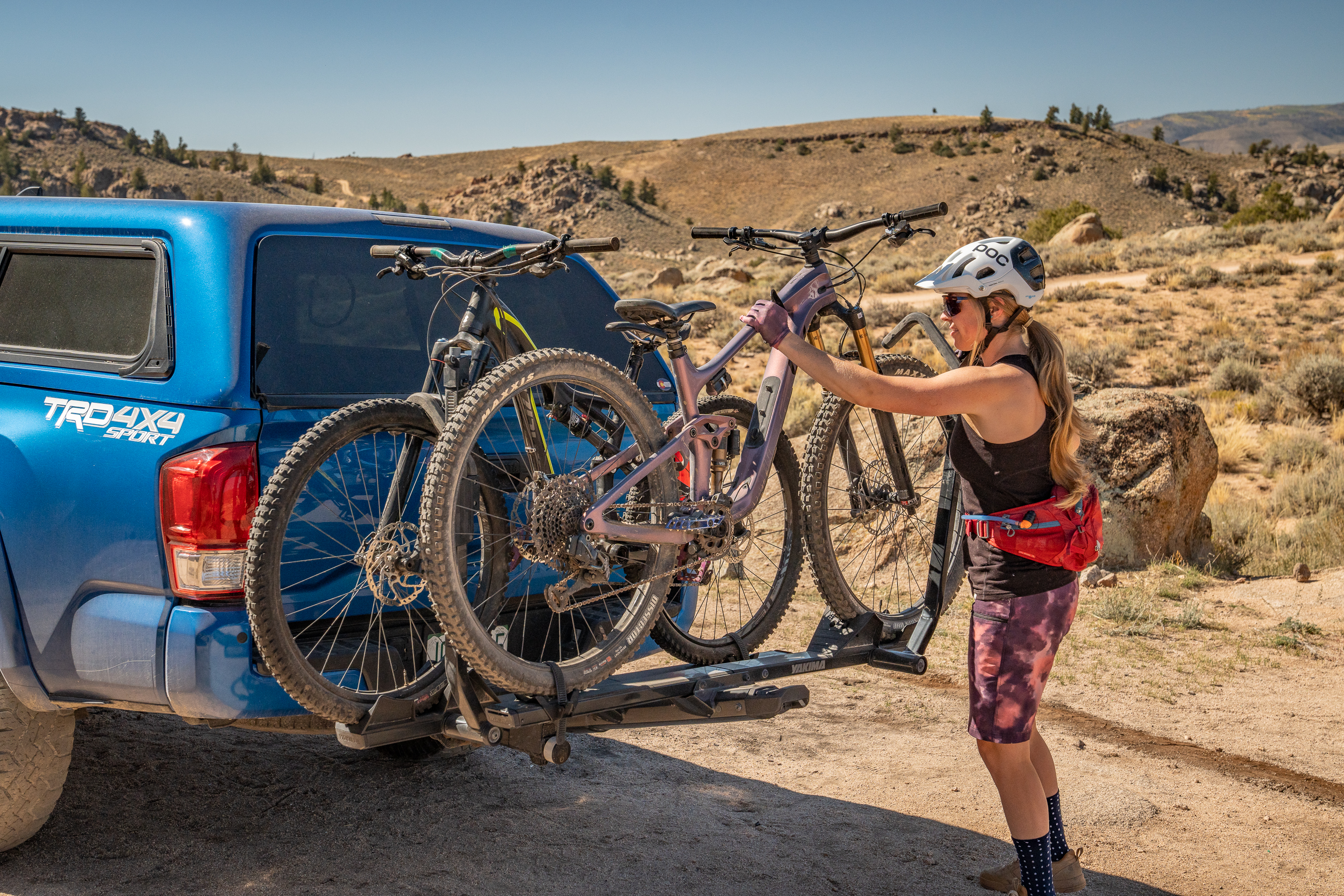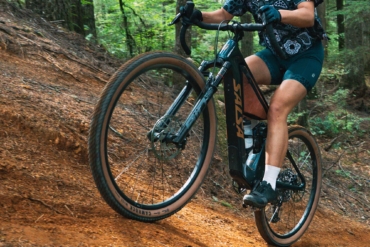Superlight and ultra-nimble, the Trek Supercaliber is a flat-out speedy XC race bike that’s as beautiful as it is fast.
We caught our first glimpse of the Trek Supercaliber in the 2019 World Cup tour (wrapped in stealthy coverings). The shrouds of secrecy came off later in the tour, and the bike finally greeted consumers in November that same year.
The latest model from Trek, the Supercaliber fills a gap between its 100mm hardtail Procaliber and the 120/115mm full-suspension Top Fuel. But what really sets this bike apart from the current lineup is the patented IsoStrut.
This innovation beautifully marries a custom FOX shock into the top tube, giving the bike 60 mm of rear travel: 55 mm from the shock and 3-5 mm from the flexible stays. While 60 mm may seem inconsequential for a full-sus MTB, it’s just enough to take out the harshness of the trail without sacrificing speed.
In short: Trek built the Supercaliber to win races. It did this by combining the best qualities of a hardtail and added in just enough rear travel to give you the confidence and control you need to fly through the rough stuff.
Trek Supercaliber XC: Super Unique

The model I tested was the 9.8, which falls somewhere in the middle of the lineup. The 9.8 is spec’d with a SRAM GX drivetrain, XT hydraulic brakes, 100mm Fox Performance 32 Step-Cast fork, ultralight Bontrager carbon rims laced to thru-axle boost hubs, and a bevy of carbon components to make it race-ready out of the box. Our size medium weighed in at a scant 22 pounds.
The Trek Supercaliber also features the Trek Knock Block, an integrated frame defense system that prevents damage from spinning handlebars. It has a little chip integrated into the frame and a custom top cap that basically prevent the fork from hitting the down tube and the handlebar controls from damaging the top tube. It felt strange at first but wasn’t limiting at all on technical uphill switchbacks.

Trek Supercaliber XC: Review
With the 2020 MTB race season closed due to the global pandemic, I did my best to put this bike through race conditions while playing by the new rules. Our headquarters in Minneapolis provided me access to plenty of killer singletrack to get rowdy on this race rig.
The first thing I noticed was how #@$%ing fast this bike rides! Accelerating, cornering, climbing, and grinding out the flats, the Supercaliber wants to go as fast as you’ll allow it. The pedaling efficiency and power transfer are so direct that I forgot I was on a full-sus bike until I hit the technical downhill sections and recognized the benefits of the IsoStrut.
But the key to speed is confidence, and the finely tuned IsoStrut performed flawlessly, allowing me to best my previous lap times with ease. I also quickly learned about the left-hand dual lockout and frequently engaged the lever on climbs or transitioning to the next trail on the flats. As the name suggests, it proved super quick and super easy.

Who Is This Bike For?
Let’s be clear, this is a World Cup race bike designed to win big races, so XC racers make up Trek’s target market here. That said, if you’re racing the local circuit and looking to shave off some time, you should seriously consider the Trek Supercaliber (assuming you have several grand burning a hole in your pocket — more on that below).
And if price really is no issue, if you just plain love to go fast on singletrack, this bike will help you crush your previous Strava lap times and leave your buddies in the dust.
Heck, the Supercaliber could even suit elite racers at the high school level. When I tested this bike at the local trails, I saw two young high school riders on matching Supercalibers that flashed me a “hang loose” hand signal — as though my wealthy parents had also splurged on a sick bike to get me out of the house.
Trek Supercaliber: Pricing & Availability
The Supercaliber comes in three different builds, or as a frame only. The model range includes the 9.7, 9.8, and 9.9 — spec’d with SRAM NX, GX, and XX1 — with prices hitting $4,500, $5,900, and $9,500, respectively. They’re all spec’d very nicely, but you’ll save a couple of pounds with each model upgrade. The frame-only option comes in at $3,700.
The really cool thing is the frame and tech are exactly the same through the range. So if you’re looking to save a couple thousand dollars and don’t mind a little additional weight, go for the 9.7 and upgrade the components as you go.






